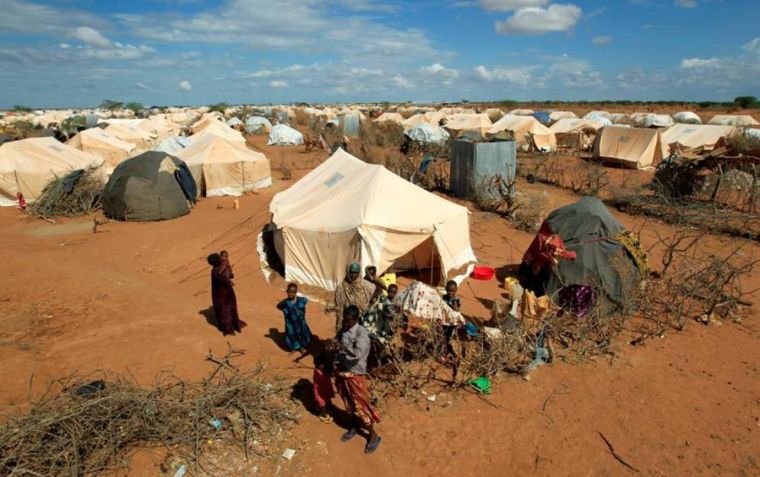World's Largest Refugee Camp Turned Terrorism Breeding Ground Set to Close: 'Like Throwing People Into Fire'

Imagine hundreds of thousands of people "thrown into a fire."
That was the image in the mind of a Somali refugee in Kenya named Mohammed, one of the more than 340,000 refugees living in a desert refugee camp near the border of Kenya and Somalia. It is the world's largest refugee camp.
Interviewed by CBN News, Mohammed said he is aware that the Kenyan government wants to close the camp in Dadaab because they believe it's a centre for recruiting Islamic terrorists. Once the government does that, hundreds of thousands of refugees will be sent back to Somalia.
"I'm thankful that Kenya has hosted us for the last 25 years, but it is going to be a big mistake to return us to a war zone. It's like throwing people into a fire," warned Mohammed, who runs an ice-making factory in the camp.
Mohammed said Somalia is still in the middle of an Islamic insurgency and hasn't recovered from decades of conflict.
"Nothing has changed there; it is still a dangerous place," he told CBN News.
Ibrahim, another Somali refugee staying in the camp, said he was 20 years old when he was forced to flee Somalia and cross the border into Kenya.
Now, 25 years later, Ibrahim has raised 17 children inside the camp. He also has four grandchildren and two great-grandchildren.
When the camp opened in 1992, it was only supposed to hold about 90,000 people. Today, the camp now provides shelter to more than 340,000 refugees, majority of them Somalis fleeing the civil war in their homeland, according to CBN News.
The Kenyan government is now preparing to close the camp, with local workers getting the fingerprints of refugees for identification purposes in preparation for their repatriation to their native land.
"The Kenya government has expressed concerns about security, mostly terrorism, following various attacks in the country," said Teresa Ongoro, who's with the U.N. Refugee Agency.
The people inside the camp have "lost their homes; they've lost their families and their communities," said Ongoro. But despite their difficulties, she said the Kenyan camp "is the safest place that the refugees can go to."
"This repatriation operation is causing us so much stress," one Somali refugee told CBN News. "I escaped here with my children. Some of them got lost on the way here; I don't know where they are. Just when I thought I was safe, now the government wants me to leave."











